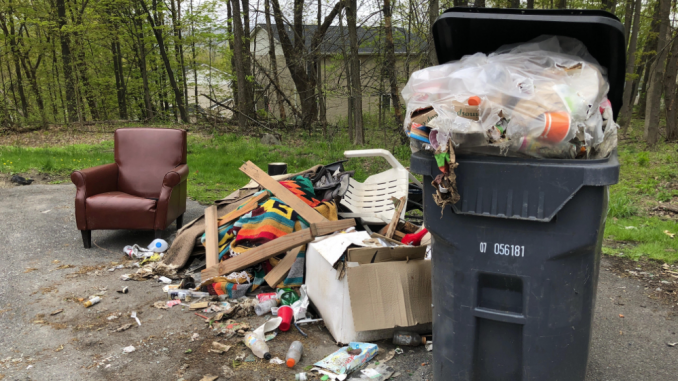
Ulster County legislators aim to up the ante on conservation law by implementing stricter oversight on food waste management.
County Legislators such as Laura Petit and Joseph Maloney plan to corral the waste output of large facilities including supermarkets, colleges and restaurants. Petit, who is spearheading the county law, hopes to implement the new regulations by next year. However, the bill currently stands as a draft.
The amount of food waste produced is roughly 30 to 40 percent of the food supply. This estimate translates to 133 billion pounds and $161 billion worth of food in 2010, according to the U.S. Department of Agriculture. Not only did state lawmakers feel this represented a massive waste of labor, but they also believed the excess food could nourish the impoverished New Yorkers.
A recent New York State law dictates that large food waste producers will be required to donate their leftover food and send the remaining scraps to a food-scrap recycling facility within 25 miles. This law, which was part of the 2019 to 2020 state budget, will be in full effect by 2022. However, some Ulster officials don’t want to wait so long.
The proposed Ulster law would amend the 25-mile radius provision, instead requiring all large food waste contributors in the county to properly recycle or compost. Each facility that yields more than 200 tons of waste, just like the sister state law, will be required to abide unless the scraps can be recovered or used for animal feed. Petit stressed the need for proper composting, instead of simply shredding the waste and sending it down the drain.
“[Composting] is not really a science, it’s an art,” Petit said.
Petit also works as a leader of the New Paltz Recycling Center (NPRC), which receives a bulk of the waste for composting for the town and village. She says that the NPRC is one of six certified compost centers in the county. Composting yields nutrient-rich soil that is sold back to the community and used for Town landscaping projects. Petit claims that SUNY New Paltz could save a pile of cash by composting on their own, instead of paying for waste haul services which she attributes to 85 percent of the school’s waste costs. She estimates that a proper compost facility would cost close to $5,000 and would lower gardening expenses as well.
The New Paltz Tops supermarket has already enacted numerous food waste and sustainability initiatives such as large-scale food donations and composting. New Paltz Mayor Tim Rogers says large facilities, such as supermarkets, are also required to collect plastic film bags that cannot be sent to normal facilities for proper processing.
While Maloney supports the local and state sustainability initiatives, he feels that neither law sufficiently addresses concerns of plastic waste. He criticizes the lack of oversight that allows many plastics to remained unrecycled: “clamshell containers” often containing ready-to-go sandwiches are among the culprits.
“Much of what the community thinks is being recycled is not being processed,” Maloney said. “We’re never going to reach the levels [of sustainability] that we want until we make it hurt financially by increasing the cost of solid waste.”
Petit says she hopes to present a working draft of the county food waste law before June 2019.

